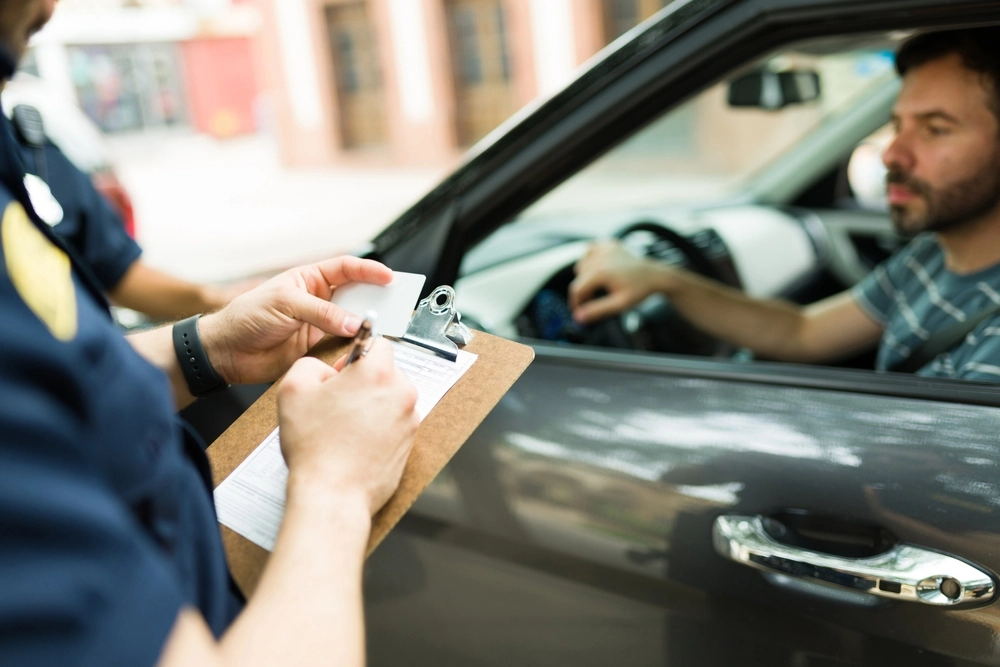
To fight a speeding ticket in Georgia, you should ensure that you appear in court on the assigned date as listed on your citation. You will have an opportunity to submit a plea.
If you plead “not guilty,” the court will schedule a trial. If you win the trial, you will have effectively cleared the ticket and any points from your driving record, as well as avoid a potential increase in auto insurance rates.
However, fighting a ticket in court introduces several challenges. This guide will help you better understand what steps to take to maximize your chances of winning.
The Process for Fighting a Georgia Speeding Ticket in a Nutshell
To contest your citation, take these steps:
- Confirm Your Court Date: When you receive the ticket, you will also be given a court date. If you want to fight the ticket, do not just pay the fine. Request a court date instead, which will give you the opportunity to present your case.
- Gather Evidence: Before your assigned date, gather as much evidence as you can to support your case. This could include photos of the area where you were ticketed, witness statements, and any relevant documents or information that could help your case.
- Show Up on Time: Failing to show up on your court date or showing up late can result in the suspension of your license per Georgia state law. You may not have the ability to reinstate your license until the final judgment on your case.
- Submit a Plea: If you plan to fight the case, you will enter a “not guilty” plea and request a jury trial.
- Challenge the Prosecution: During your case, you will have the opportunity to present evidence that proves your innocence. The prosecution may also bring forward its own evidence. Usually, the officer who wrote the ticket will appear in court and provide testimony and evidence.
- Negotiate an Agreement: If you fail to achieve a verdict of “not guilty,” you may have the ability to negotiate a lesser sentence with the prosecution in exceptional situations.
You should also consider hiring an attorney that specializes in traffic violations in your area. Professional legal assistance can mean the difference between a serious hit to your driving record and a small fine.

Crafting an Effective Defense
You have several defenses at your disposal when it comes to fighting a traffic citation. The most common ones include:
- Factual Inaccuracies: Review the citation carefully to identify if the officer has made significant mistakes in terms of the date, time, location, vehicle description (were you driving an SUV and the officer identified it as a motorcycle?), or license plate.
- Procedural Defenses: Some violations only apply in certain circumstances. For example, if you drive above the speed limit in a school zone with no children present, you may have a defense.
- Pacing Inaccuracy: Some officers use pacing to estimate the speed of a vehicle ahead of them. This approach may not hold up in court.
- Radar Gun Inaccuracy: Radar guns have special maintenance requirements and can have inaccuracies in large groups of vehicles. Additionally, radar gun accuracy degrades with distance.
The quality of your defense rests on the facts and evidence you can bring to court, including your own testimony. If you can demonstrate that the officer lacks adequate evidence to prove that you were speeding, you may achieve a “not guilty” verdict.
What Happens If the Officer Fails to Appear
If the citing officer fails to show up in court on the scheduled date with no adequate reason and the court cannot contact him or her, the judge has the discretion to dismiss the case.
However, if the officer provides an adequate reason for not appearing, the court may reschedule the case to a later date.
Note that an officer failing to appear does not mean you will automatically win the case.
Negotiating with the Prosecutor
If you are unable to get the ticket dismissed, you may be able to negotiate a reduced fine or other penalties. Be respectful and courteous when negotiating and explain why you believe the punishment is too harsh.
The Different Types of Verdicts
After the case has finished, the court will enter a verdict of “guilty” or “not guilty.” If you receive a “not guilty” verdict, the judge will dismiss the charges.
If you receive a “guilty” verdict, the court will instruct the Georgia Department of Driver Services to assign the appropriate penalty points to your record and may take other actions depending on the severity of the case.
How Georgia’s Points System Works
Every traffic citation issued by officers in Georgia results in the addition of points ranging from 2 to 6 depending on the nature of the violation.
If you receive 15 points in a two-year (24-month) period, Georgia’s Department of Driver Services will suspend your license. Reinstating your license can be a difficult and time-consuming process.
Reducing the points on your license involves completing a defensive driving course.
Additionally, not all violations will result in points additions, including convictions for driving less than 15 miles per hour over the speed limit, lack of Georgia residency, and “Too Fast for Conditions” convictions.
Pay careful attention to the number of points you have accumulated to avoid suspension.
Dealing with a Super Speeder Fine
George has a special type of fine called a “Super Speeder” fine that applies to drivers who travel 75 miles per hour or faster on a regular two-lane road or 85 miles per hour on a highway. This fine adds an additional $200 to the cost of paying the citation.
Failure to pay this fine can result in the suspension of your license. However, you can fight it by contesting your ticket in court.
When to Seek Legal Advice
If you have been accused of reckless driving or a more serious offense that could result in a misdemeanor on your criminal record, you should retain the services of an experienced attorney.
Additionally, if you do not feel comfortable fighting your ticket in court by yourself, a lawyer can help you work through the process.
Remember, the best way to avoid a speeding ticket is to obey traffic laws and drive safely. However, if you do receive a ticket, you have the right to fight it in court. Good luck!
Take Steps to Avoid Points on Your License in Georgia
Knowing how to fight a speeding ticket in Georgia can be an important part of staying safe on the road. By understanding the process and the legal options available, you can be prepared in the event that you are pulled over. In addition, having good insurance coverage may also help to reduce the severity of the penalties imposed by the court, such as points on the driver’s license, higher insurance premiums, and possible suspension of driving privileges.
By taking the time to understand how to fight a speeding ticket in Georgia, drivers can be better prepared to protect themselves and their finances.